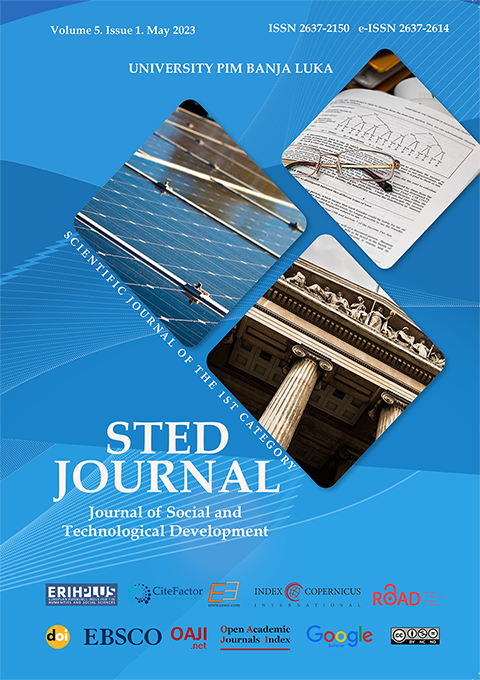ПОВЕЗАНОСТ ИЗМЕЂУ МОБИНГА И БЛАГОСТАЊА НА РАДУ ЗАПОСЛЕНИХ ЖЕНА
THE CONNECTION BETWEEN THE PERCEPTION OF MOBBING AND WELL-BEING AT WORK FEMALE EMPLOYEES
Author(s): Snježana StanarSubject(s): Gender Studies, Labor relations, Labour and Social Security Law
Published by: Univerzitet za poslovni inženjering i menadžment
Keywords: mobbing; well-being at work; female employees;
Summary/Abstract: Mobbing is a behaviour whose aim is to underestimate and degrade other human beings by means of malevolent language and obscure cruel acts, which gradually undermine one’s proper functioning and affect both one’s mental and physical health (Kostelić-Martić, 2005). Well-being at work refers to all aspects of employees' workplace life, from how they feel, what their working environment is like, safety at work including physical and psychological safety, job satisfaction, involvement in work and the position they have in the organization. The research problem refers to the examination of the connection between the perception of mobbing and the well-being at work of employees. Individuals who perceive mobbing as present in the organization and who are exposed to this type of stress, have impaired well-being. According to earlier findings, mobbing significantly affects the well-being of individuals at work in a way that impairs it, whereby they experience various psychological disturbances and are thrown out of work activities, because they stop adequately performing work tasks. Also, people who experience mobbing have a decline on motivation, work efficiency, a drop in the feeling of fulfillment, loss of trust, they complain of fatigue and feelings of anger and frustration. Two measurement instruments were used in the research: the mobbing perception scale and the Work Well-being Scale - WBWS, which have satisfactory measurement characteristics. The survey was conducted via an anonymous internet questionnaire, and a representative sample of employees in Bosnia and Herzegovina was used (n=273). The data thus obtained indicates that, statistically, the perception of mobbing is significantly negatively related to well-being (rho=-.382, p<.01), and its two aspects: positive affects (rho=-.531, p<.01), a feeling of fulfillment (rho=-.337, p<.01), and positively related to the negative effects aspect (rho=.592, p<.01), which confirms both the starting hypothesis and its sub-hypotheses. The perception of mobbing in the workplace negatively affects the well-being at work, i.e. higher levels of subjective perception of mobbing go hand in hand with lower levels of well-being at work. Furthermore, higher levels of the perception of mobbing are accompanied with lower levels of positive affects and feeling of fulfillment, and higher levels of negative affects. Although the consequences of mobbing are felt, to the greatest extent, on an individual level, there are inevitable negative consequences on the organizational level as well. As mobbing has a negative effect on the well-being at work of an individual, it also adversely affects the work and results of the entire organization.
Journal: Časopis o društvenom i tehnološkom razvoju
- Issue Year: 5/2023
- Issue No: 1
- Page Range: 11-24
- Page Count: 14
- Language: Bosnian, Serbian

